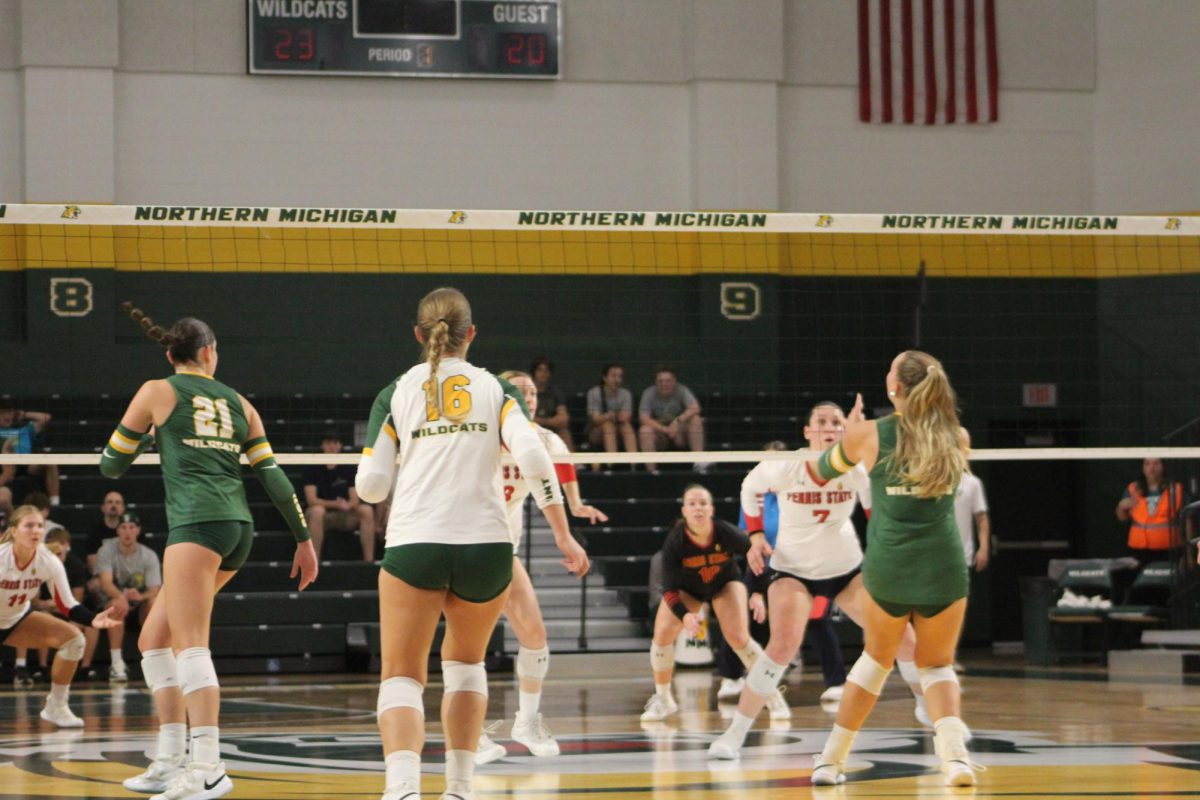The Wildcat Nordic skiing teams will be heading to their last meet this weekend before participating in the NCAA championships on March 10. The meet at Michigan Tech will be like any other, as the Wildcats will go against other Central Collegiate Skiing Association (CCSA) teams like the host Huskies and the University of Wisconsin-Green Bay Phoenix, but really this meet could be a lot more somber. Why? Because none of the teams, including NMU, will have a legitimate shot at winning a National Championship.
All teams involved have some solid competitors. NMU’s Andy Liebner and Martin Banerud went 1-2 in both races at the CCSA championships last weekend and Carolyn Freeman of UWGB was 0.3 seconds away from bringing out the broomsticks on the women’s side, but that isn’t the issue. The teams are doing well too, including NMU who took both the men’s and women’s CCSA combined championships, with the men just one point short of a perfect score.
The issue is that the Wildcats, as well as every other team in the CCSA, do not have an alpine skiing team. Alpine skiing, also known as downhill skiing, is included into the NCAA skiing national championship. Points from the two alpine events and two Nordic events from both the men’s and women’s races will combine for the eight-event championship. Teams that do not have both Nordic and alpine squads are at an insurmountable disadvantage, penalized by a de facto disqualification of points.
Unfortunately, the NCAA has stopped all attempts to split the skiing championship into two categories. Numerous tries from schools all over the country, with reasons from travel distances to financial concerns have not swayed the NCAA’s decision. The NCAA in their questionable wisdom won’t even allow two championships for both men and women.
As a sports fan, this is just another disheartening movement by the association. Most people that follow collegiate athletics have lashed out about the BCS or the advantages of big conferences in the Division I basketball tournament. Even the more in-depth fans can remember controversial snubs in D2 from Earned Access, but to see that a pretty common-sense decision as having two national championships is absolutely heartbreaking.
Now it seems like these schools have gone through the five stages of grief and accepted their fates as only being able to get their athletes to individual national championships and All-American statuses. It is good that these teams are able to still compete, still get to love the training and competition and still get to represent their schools in a positive way.
However, I think that the schools should put their teams in a better position to shine on the national stage. The Wildcats are an excellent example of what happens in a best case scenario, as NMU got a perfect score in the women’s 2007 Nordic national championships, only to finish eighth as a team in the overall standings. The ’Cats scored 380 points combined and lost the overall championship to Dartmouth by 318 points.
That is just too ridiculous to accept. Quality programs and quality athletes should have the same access to hold up the hardware, despite not having a completely different set of athletes to rely on. Skiing, like track and field and swimming, is just as much as an individual sport as it is a team sport.
This still leaves an issue of where schools can compete locally, gain a competitive edge and create rivalries. To me, this is the easiest fix.
As a conference, schools can essentially unionize and create an alpine side of the CCSA. With the exception of the Nanooks of Alaska, all the schools in the conference are in the U.P., Wisconsin or Minnesota. Each school has a ski hill close to their campus (with Michigan Tech actually owning their own), so the CCSA can actually pair up the Nordic and alpine teams for CCSA events to save on time and money.
Yes, more money will have to be spent to travel to NCAA qualifying events in the Rockies and Appalachians, but the important thing is if the conference allied together, the financial burdens would be lessened by all. In this tough economic time, the NCAA doesn’t have the financial interests of its members in mind, but a proactive conference can help fill the void.























